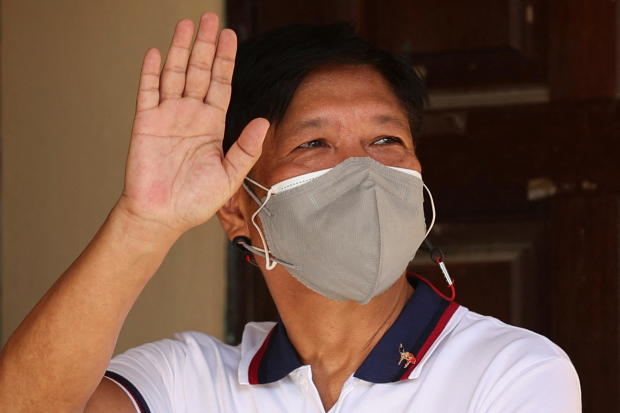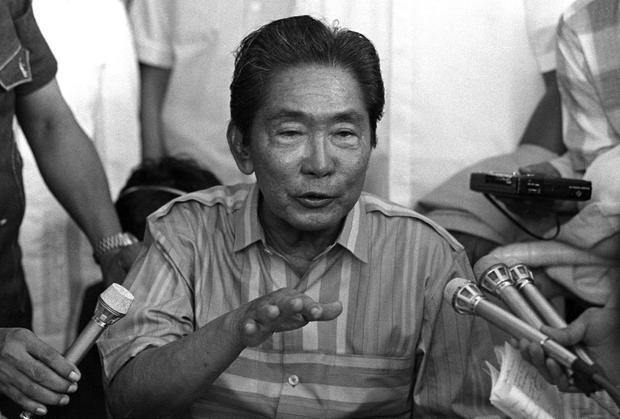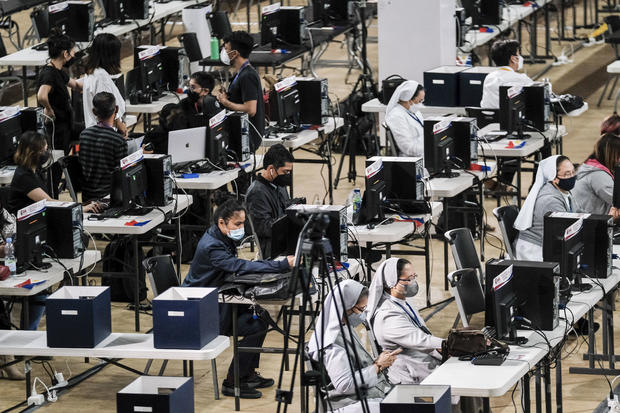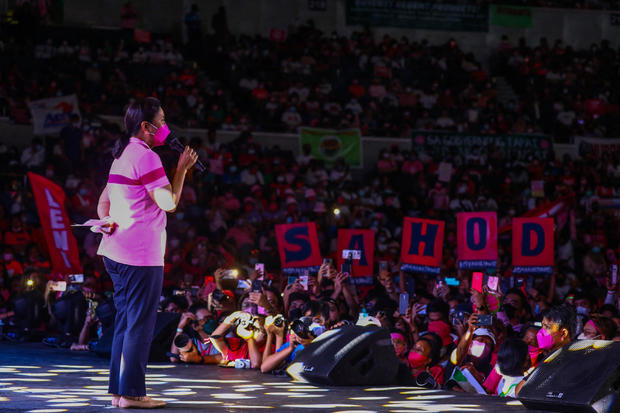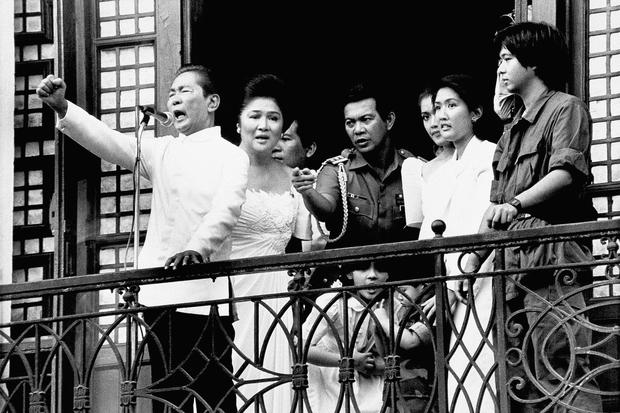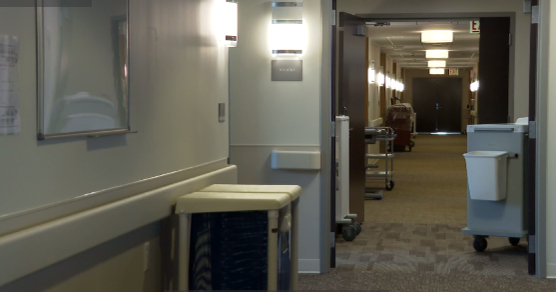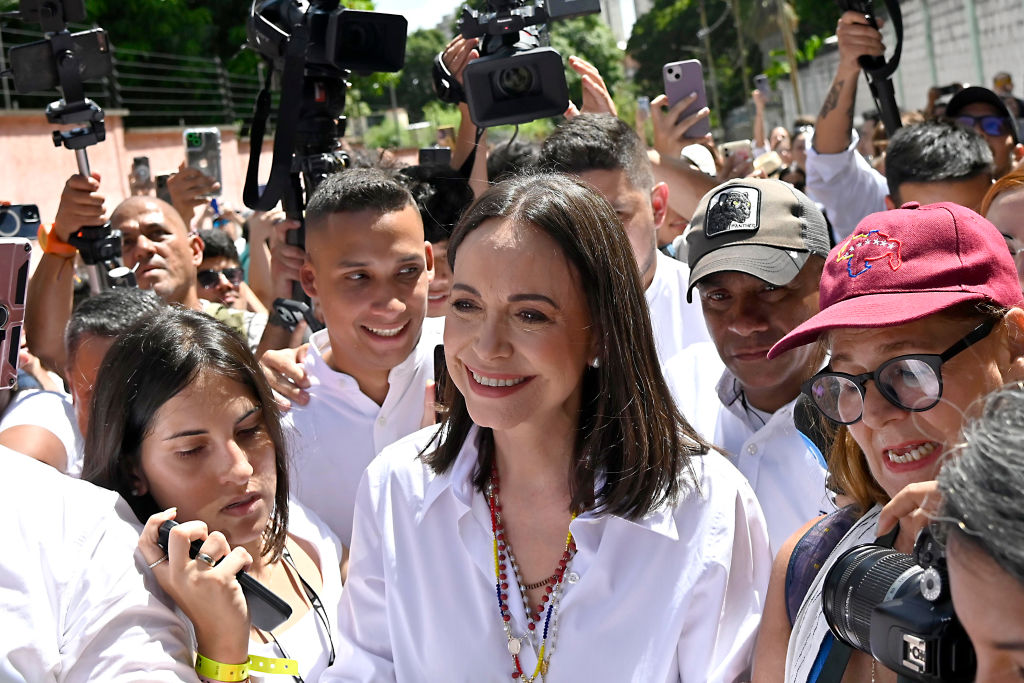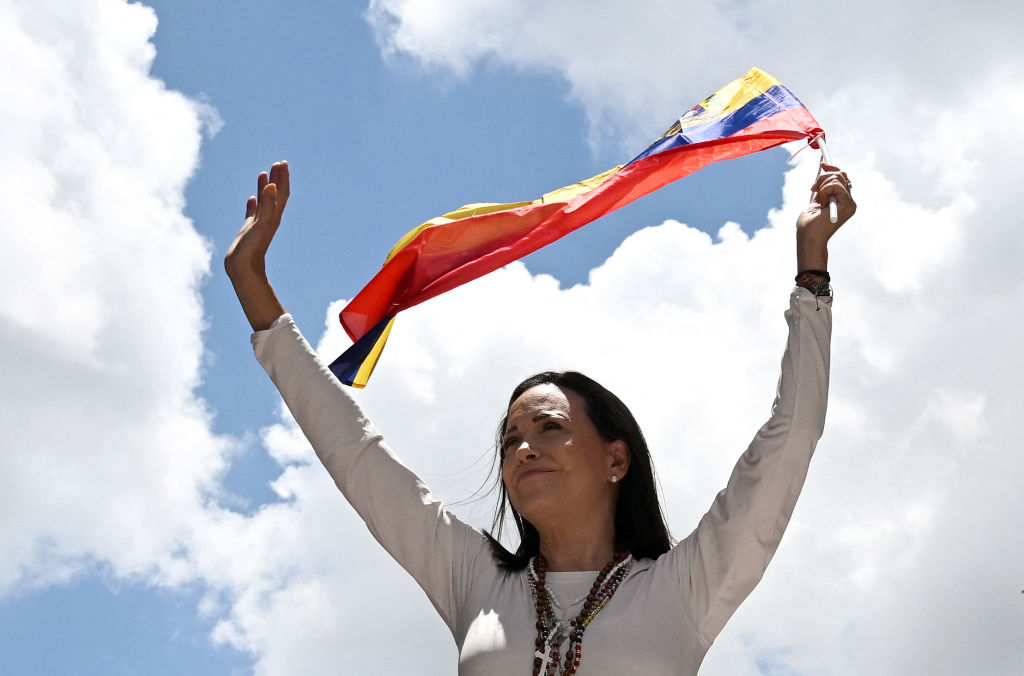Philippines election 2022 looks set to make dictator's son Ferdinand "Bongbong" Marcos Jr. the president
Manila — Millions of voters headed to the polls in the Philippines Monday, propelling the namesake and son of former dictator Ferdinand Marcos to an early lead in his bid to bring his family back to the top of the country's political hierarchy. Amnesty International estimates that during the elder Marcos' two-decade reign — about half of which the nation spent under Marial Law — some 70,000 people were jailed, 34,000 tortured, and more than 3,000 killed.
"What the Marcoses have done is basically propagate an alternative history of the Martial Law period as a period of peace, progress, and prosperity," Sheila Coronel, a veteran Philippine journalist and professor at the Columbia School of Journalism, told CBS News.
The Marcos family also amassed an estimated $5 billion to $10 billion in ill-gotten wealth during that time.
"At least $3 billion-worth of assets have been recovered, so it is a realistic estimate," Ruben Carranza, a former commissioner of the Presidential Commission on Good Governance, the agency tasked with finding and reclaiming the stolen billions, told CBS News.
Despite that history, the dictator's son, Ferdinand Marcos Jr., who goes by his childhood nickname of "Bongbong," took a decisive early lead as the votes poured in Monday. The son largely evaded questions about his father's infamy — and his own possible complicity in bilking the nation of its public wealth — throughout the campaign period.
"I voted for Bongbong and his running mate Sara Duterte," one voter in Manila told CBS News on Monday. "I think we will have a good future under them. They're very enlightened."
The historic election was marred by violence and malfunctioning vote counting machines. A video spread quickly on social media showing an unidentified group of men in the Southern Philippines destroying machines and tearing ballots. At least four people were killed in gun-related incidents in the same province.
Across the country, around 1,800 ballot machines were reported as either having defective memory cards, not reading ballots, or not printing vote confirmations, according to the Commission on Elections. Voters were left with two options if the machine they were using failed: Either leave their ballots and trust that election officers would feed them into a working machine later, or wait themselves for another chance to cast votes.
"We will wait for the machines to get repaired. We won't entrust our votes to someone else," 21-year old LIana Trajeco said.
Current Vice President Leni Robredo, who's running against Marcos Jr. for the country's highest office but was polling second ahead of the vote, expressed concern over how the glitches could affect the credibility of the elections.
"Tampering with the integrity of the elections could mean trouble. If there are people planning to do this, I hope they don't go through with it," Robredo said.
She urged her supporters to keep a close watch on their votes. Robredo had gained considerable ground in the polls since she first announced her run in October, thanks in large part to an army of volunteers who spent their own time and money campaigning for her.
But despite the surge of support, Robredo was undoubtedly fighting an uphill battle as Filiponos headed to the polls on Monday.
But while Marcos Jr. appeared to have managed to whitewash his father's legacy to reclaim his family's name, analysts say he's more likely to build on current President Rodrigo Duterte's populist appeal than fall back on his father's strict authoritarian ways.
One thing analysts do broadly agree on, however, is that another Marcos presidency could mean that whatever remains of the family's ill-gotten wealth, will remain with the family.
"He will not immediately abolish the Presidential Commission on Good Government," predicted Carranza, the former PCGG commissioner. "He can even try to use it as a cover for clawing back ill-gotten wealth already recovered by the government."
In 1986, the Philippines ousted the first Ferdinand Marcos after 21 years of authoritarian rule. His reign was brought to an end by a four-day peaceful mass-uprising. The world watched in amazement as the extremes of the dictator and his family's opulent lifestyle were revealed.
"In the 1980s, as children were dying of hunger, Marcos decides to give four buildings to his wife Imelda in New York," said Carranza, of the Presidential Commission on Good Governance.
The economy went into recession during Marcos' final years. Foreign debt ballooned to more than $26 billion from less than $1 billion in 1965 when he first took office.
For years, the Marcos family's massive theft was considered established fact. But Bongbong managed to convince a huge proportion of his country either that he was no part of his father's misdeeds, or that they never happened.
Analysts say Sara Duterte, the daughter of President Rodrigo Duterte and the mayor of Davao City, helped shore up support for Marcos Jr. by joining him on the ticket as his pick for vice president.
Marcos Jr.'s critics sought to highlight his lack of any political track-record or detailed platform ahead of the vote, but he appeared to ride a wave of nostalgia that has swept across the Philippine electorate. A disillusioned segment of society looks back on the Marcos years as a golden era for the country.
"My mother would always be mindful of the time, because there was a curfew," Geraldine Co, who was born during the Martial Law years, told CBS News. "I remember how disciplined people were."
